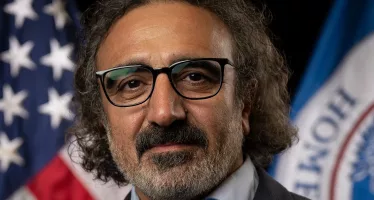Sango Capital: What 10 Years of Investing in Africa Might Tell Us About the 10 to Come

The current African investment opportunity could well be one of “the greatest of a generation”, says Sango Capital co-founder and managing partner Richard Okello.
“As we reflect on the past decade spent building an institutional investment business that partners with global investors, we cannot help but wonder what the next 10-years of investing in Africa could look like,” he said.
Sango Capital is taking the opportunity to look over its shoulder at the experience gleaned from the past decade — and its implications for investing in Africa today.
A renowned historian once said, “History is lived forwards, but written in retrospect;” Okello points out, “We know the end before we consider the beginning.” The lessons from history — which we can consider only after it has happened — should be considered and applied to our day-to-day reality.
For Sango Capital, the period can be split roughly into three parts: 2011-2015 — a rising tide lifting all boats; 2016-2019 — a disconnect between macro and micro-the bifurcation of performance; and 2020/21 — the “Covid acceleration effect”.
From 2011 to 2015, the world economy grew 18 percent in real terms, mostly driven by emerging and developing economies — which were up 25 percent, in real terms.
“The US Dollar had its third-strongest appreciation in 50 years,” says Okello. “Developed markets roared ahead driven by easing monetary policy and declining rates. US 10-year yields, for example, declined by 50 percent from their starting levels.”
Emerging market returns, however, underperformed on a relative basis. Capital started to flow into public and private African markets from a broader set of North American investors, historically less active in the region. A large amount of that investment was deployed into large-cap private funds.
The rising tide lifted most boats. “We spent substantial amounts of time educating our investors on a region that few knew anything about, and even fewer understood,” Okello says.
The next four-year period (2016 to 2019) saw toppy developed market valuations and the US dollar weakened. African markets under-performed as a whole, weighed down by pre-global financial crisis private equity vintages, although there were some notable outliers.
“As private equity investors, we observed several key changes in our markets,” says Okello. “A bifurcation between likely winners and losers, the rationalisation of large-cap funds, the definition and rapid evolution of a core middle market space that was deeper, broader and more localised in its focus.”
Several funds started to prepare their companies for exit. “We also observed a deepening and broadening of the private investor base into Africa as commercially-oriented and impact-oriented investors increasingly deployed capital into Africa.
“A number of our investors started to invest directly alongside Sango Capital into private equity funds and into companies — albeit in toe-hold sizes.” More strategic investors started exploring how to build out more meaningful exposure in the region profitably over longer timeframes.
The disconnect between the macro-performance of the region and the lagging industry average performance had the effect of slowing inbound capital and obscuring more substantial changes.
At a macro level, several structural changes began to manifest in Africa. The accelerated adoption of mobile money, which underpinned the behavioural changes of the Covid period. Countries that had invested in infrastructure started to reap the benefits through greater population mobility, urbanisation, and sustained growth.
“Overall,” says Okello, “currency stability improved across the region as balance-of-payments strengthened and a number of currencies de-pegged or outright floated. That change has underpinned the difference in currency performance in the current pandemic versus previous crises.”
Debt capital markets deepened with substantial local and dollar issuance. Potentially transformative long-term themes took hold, such as the East African seaboard gas opportunity in Mozambique, Tanzania and Egypt, and Africa’s free-trade area — the largest in the world.
Then came the pandemic. The period had a meaningful impact on the private investment landscape. As developed markets contracted sharply, Africa was generally expected to suffer.
“Instead, it registered a modest recession in 2020 and has rebounded strongly in 2021, clearly showing its overall resilience to crisis,” Okello says. Foreign capital inflows slowed due to rising US markets, backed by central bank and fiscal liquidity.
“That has expanded the capital supply/demand gap — a beneficial position for investors with dry powder. Where the continent was already a leading adopter of digital technology (given the shortcomings of physical infrastructure), Covid has accelerated technology adoption far beyond what we could have ever imagined.”
Some of that is playing-out in a robust venture capital ecosystem, but the adoption of technology in “old world economy” companies is changing competitive dynamics — and could disrupt whole industries.
“These changes are not limited to sectors of commercial interest, but accelerate the delivery of positive social economic impact. Technology adoption is driving the costs of service delivery lower and bringing more consumers into the broader consumption net.
“We see this in portfolio companies that have changed delivery models for food and other essentials to reach new customers. In the healthcare industry, Covid-19 has brought African vaccine production closer to reality in at least four countries.”
Within the private equity industry, the gap between winners and losers has increasingly widened as stronger teams emerge. There is nothing like a crisis to refine the private equity value addition imperative, Okello believes. “That should benefit valuations and performance over the next few years. Exits are starting to pick up the pace. This year alone, we have had our first two technology unicorns as well as a number of strong growth private equity exits.”
What can we expect as we peer into the next decade? “First, Africa is expected to be the only region with accelerating growth. That growth is a tail-wind — we don’t expect that tide to lift all boats. Differences across countries, sectors, private funds and companies will be stark.
“Now, more than ever, it’s critical to identify, support and work with the right teams.”
Consistently superior information, and the capacity to add operational value to growing companies, are stand-out factors. “Company teams/sponsors coming through Covid are only too aware of the cost of the wrong partners and have become even more discerning.
“What is unlikely to change for African private equity in the near-term is that investors can purchase companies growing 20-50 percent per year for half the price that one would pay elsewhere.
“That should continue to support performance for GPs and management teams that can sustain that growth after the infusion of new capital in select sectors and countries.”
The venture ecosystem has evolved — and is gaining momentum. Continental venture fundraising is on track to match or exceed growth private equity fundraising supported by strong performance.
“Africa’s backdrop of mobile phone adoption, and the need to innovate past the myriad of geographic constraints, is making for very innovative and scalable solutions,” says Okello.
“A number of those, such as SWVL, are already being exported into other continental markets. Other markets, such as private debt solutions — which are still in their infancy — can only grow as demand for their services continues to exceed supply.
“Finally, we expect the investor complex to evolve and become more competitive. As co-chairs of the Africa Venture Capital Association’s Limited Partnership Committee, one of our key thrusts is helping local African pension funds invest a larger portion of their reported $350bn into private asset classes.
“As the world pays more attention to ESG and its impact, investors are realising what we already know, that Africa leads other regions and offers substantial impact without returns degradation. They want to invest more here. As commercially orientated investors saturate developed markets, we expect that a portion of that capital will increasingly look to Africa.
“Today, we estimate that Africa has less than 0.1 percent of North American pension and endowment fund allocations. Just as the US undertook to strategically support Silicon Valley 60 years ago, some African governments, such as Morocco and Egypt, are catalysing private capital by taking first-loss, or riskier positions ahead of foreign or local private venture capital, given the expected job-creation effect.”
So, is Sango Capital living history forwards? “We are working hard to apply lessons learnt from the past 10 years into our capital deployment and harvesting plans for the next 10,” is all Richard Okello will say.
You may have an interest in also reading…
General Mediterranean Holding: More Titles and Honours Than Your Average Captain of Industry
Founder and chairman of General Mediterranean Holding (GMH), Sir Nadhmi Auchi, began his career with the Iraqi Ministry of Oil
LegalOne: Driving Innovation and Financial Inclusion for National Development
LegalOne Global Limited has established itself as a trusted authority in independent ratings and business intelligence, delivering rigorous research and
Hamdi Ulukaya, the founder and CEO of Chobani
Yogurt king Hamdi Ulukaya, the founder and CEO of Chobani, has all his values in the right place Turkish immigrant

















































































